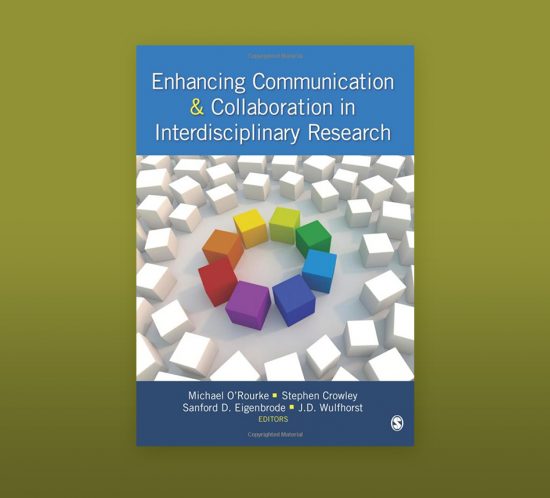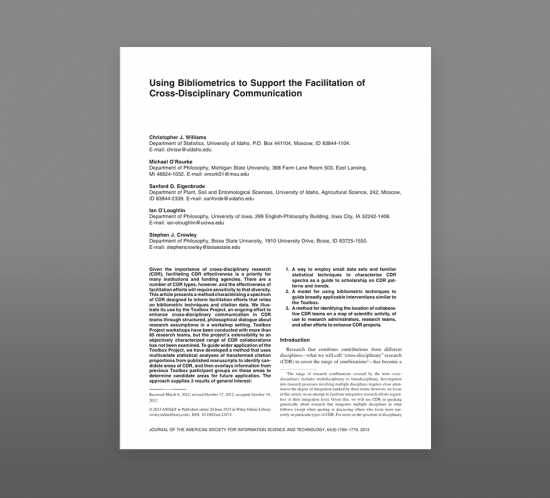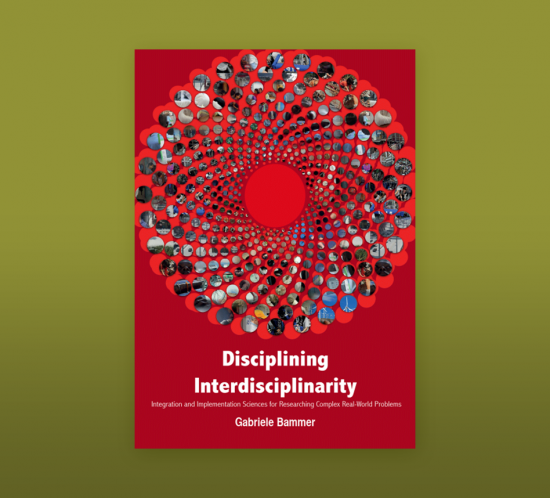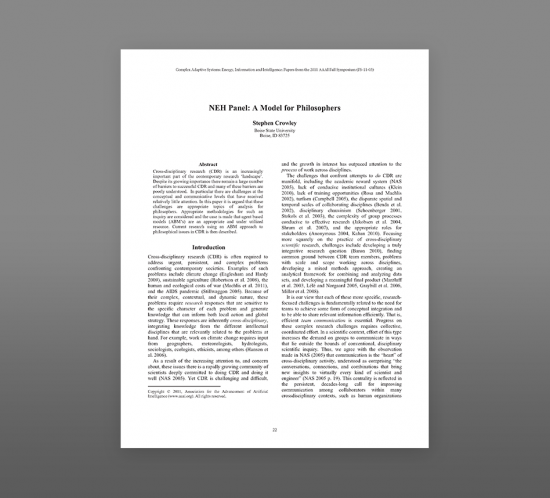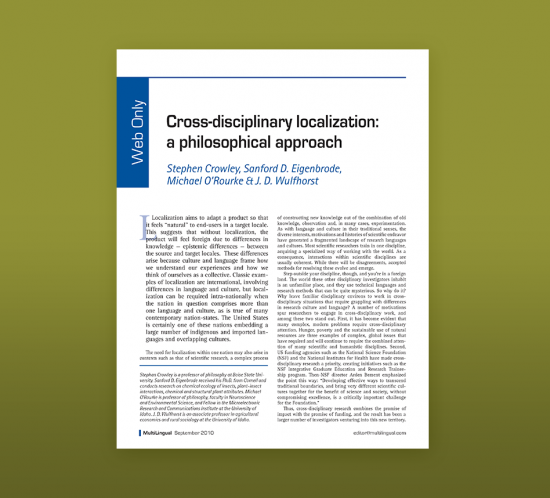Enhancing Communication and Collaboration in Interdisciplinary Research
Enhancing Communication & Collaboration in Interdisciplinary Research, edited by Michael O’Rourke, Stephen Crowley, Sanford D. Eigenbrode, and J. D. Wulfhorst, is a volume of previously unpublished, state-of-the-art chapters on interdisciplinary communication and collaboration written by leading figures and promising junior scholars in the world of interdisciplinary




